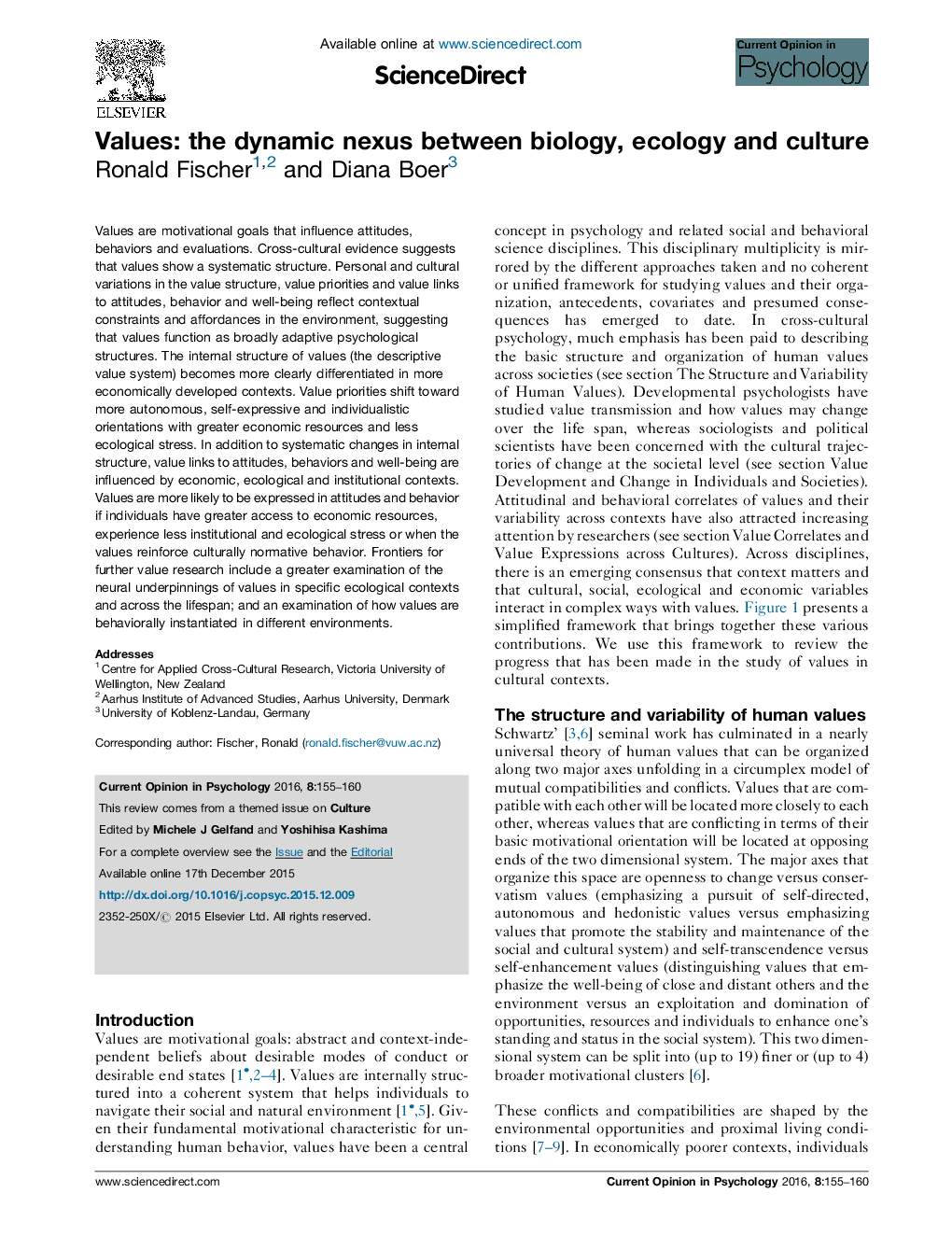| Article ID | Journal | Published Year | Pages | File Type |
|---|---|---|---|---|
| 879303 | Current Opinion in Psychology | 2016 | 6 Pages |
•Values are adaptive and help individuals adjust to and thrive in their environments.•Personal values are more differentiated in economically developed contexts.•Ecological threats and available resources impact on values and their motivational force for attitudes, behaviors and well-being.
Values are motivational goals that influence attitudes, behaviors and evaluations. Cross-cultural evidence suggests that values show a systematic structure. Personal and cultural variations in the value structure, value priorities and value links to attitudes, behavior and well-being reflect contextual constraints and affordances in the environment, suggesting that values function as broadly adaptive psychological structures. The internal structure of values (the descriptive value system) becomes more clearly differentiated in more economically developed contexts. Value priorities shift toward more autonomous, self-expressive and individualistic orientations with greater economic resources and less ecological stress. In addition to systematic changes in internal structure, value links to attitudes, behaviors and well-being are influenced by economic, ecological and institutional contexts. Values are more likely to be expressed in attitudes and behavior if individuals have greater access to economic resources, experience less institutional and ecological stress or when the values reinforce culturally normative behavior. Frontiers for further value research include a greater examination of the neural underpinnings of values in specific ecological contexts and across the lifespan; and an examination of how values are behaviorally instantiated in different environments.
Graphical abstractFigure optionsDownload full-size imageDownload as PowerPoint slide
